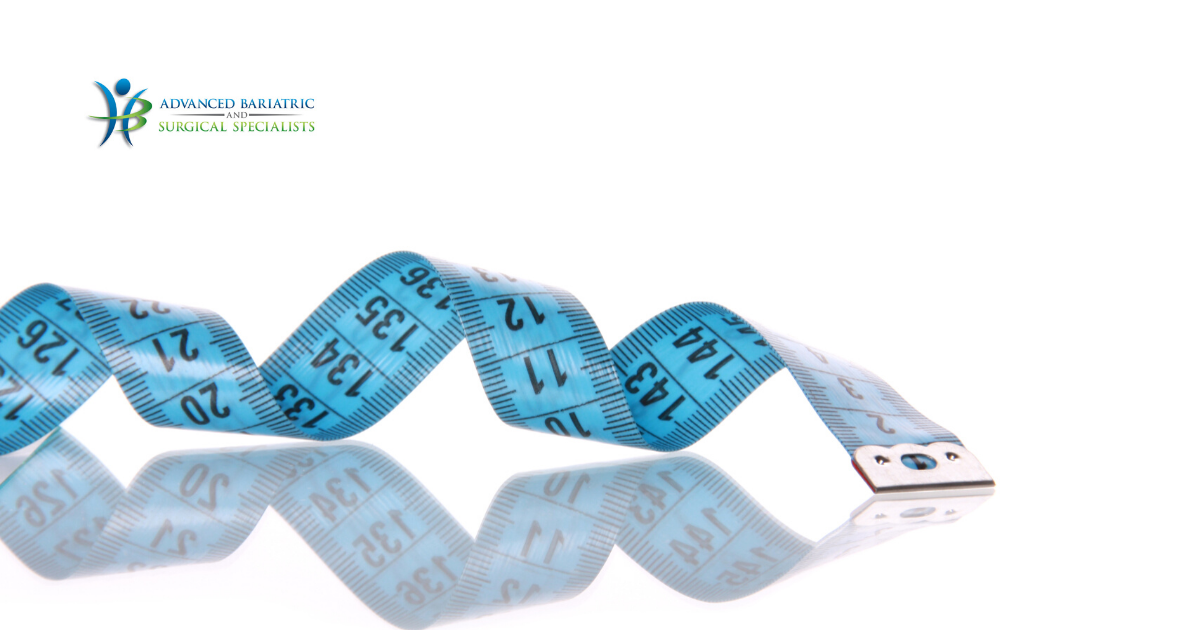How Do You Prevent Weight Regain After Weight Loss Surgery?
According to the American Society for Metabolic and Bariatric Surgery (ASMBS), in the years after weight loss surgery half of patients will regain 5-10% of their excess weight. This typically occurs as patients adapt to their new anatomy and become less strict with changes in diet and lifestyle made after surgery. Minor weight regain after the initial period of weight loss, which is about the first year to 18 months after surgery, is absolutely normal. However, weight regain can be concerning and we are always happy to discuss your unique situation and concerns. We never want a patient to hide weight regain in shame or fear of disappointing Dr. Chang and the care team. It is our goal to help you succeed. Every patient is different, but we find some things to be helpful across the board when it comes to staying on track:

Know You Goals and Share Them
If you don’t know your destination, it’s a lot harder to get there. Setting clear, measurable goals has been found to aid in success. Further, setting smaller goals that build along the way can help you mark your progress. Your ultimate goal may be to lose 150 pounds, but marking your progress in 15-pound increments can keep you motivated to move forward. Other than weight related tracking, you can also measure your waist size in inches, or measure other experience related achievements. Rewarding yourself along the way can also be impactful, and we don’t mean with food. Maybe when you make it to 50 pounds of weight loss you take a quick staycation or indulge in a pedicure. This mentality doesn’t have to stop when the weight loss stage slows down. Reward your continued success and celebrate milestones.
Research has shown that sharing your goals with others leads to better success. Not wanting to do this can come from not wanting others to know about your failures. What really matters much more is the ultimate results. Involving others in your journey adds motivation. Allow this sharing mentality to continue well into your maintenance years. Secrets cause you to hide in the shadows, but being open about your goals, your struggles, and your successes allows for accountability.
Find Foods That Work for You
If you are trying to limit yourself to eating foods that you hate, it is more difficult to stick to your diet in the long-term. Oftentimes, bariatric patients find their tastes in food change after surgery and we encourage you to try foods that you normally wouldn’t, especially those that are lean, high in protein, low in sugar (especially added), and low in carbohydrates. While shakes and bars often serve up a convenient pop of protein, they can become a crutch. Focusing on real food, once you transition to your new life, will help you better acclimate as you move into the maintenance phase.
Finding what works for you also means eliminating, or at least greatly limiting, the foods that don’t contribute to your success. Many patients find weight regain comes by allowing foods back in that they had previously removed from their diet. Trying new spices, preparations and techniques can keep food fun. If you’re struggling to keep your diet on track and aren’t sure where to turn, reach out to a foodie friend and challenge them with your needs. Better yet, sit down with a Registered Dietitian that knows the ins and outs of what foods can help and hurt.
Get Active, And Keep Yourself Engaged
It is no secret that exercise has health benefits, and they extend far beyond weight loss. This is why we recommend you get active early on in your weight loss surgery journey. Making this commitment and cementing it as part of your life can make all the difference. Exercise not only burns calories, it also brings benefits for mood, stress release, bone health, energy levels and can reduce risk for chronic diseases. Exercise can come with a lot of motivations like achieving new abilities: lifting more, going faster, stretching farther, and holding longer. When you achieve something, you feel good. Thinking of exercise as treating your body well, not punishing yourself, can change the game and help you maintain a healthier self for longer. Metabolically speaking, exercise can raise your resting metabolic rate as well, meaning you’ll be burning more calories even when at rest.
Keep Follow Up Appointments and Work with Your Providers
Follow up appointments serve a vital purpose. We want to see how you’re doing and how we can help, wherever you are in your journey. So be honest with our team. As you move past your initial weight loss phase, we know the challenges don’t stop. Bariatric patients aren’t “done” once the weight has been lost, you simply find a new phase to navigate. Whether you are feeling great, struggling with low energy, experiencing weight regain or have concerns, we are a resource for you and are ready to help. There can be rare post-op issues that occur that your care team may identify and can help to fix, but if we aren’t seeing you, we can’t treat you. Vitamin deficiencies are a known issue after bariatric surgery and symptoms can take time to present. Let us stay on top of your health to keep you at your best. If you’re not sure when your next follow up appointment is, or you haven’t seen us in a while, we encourage you to call our office.

